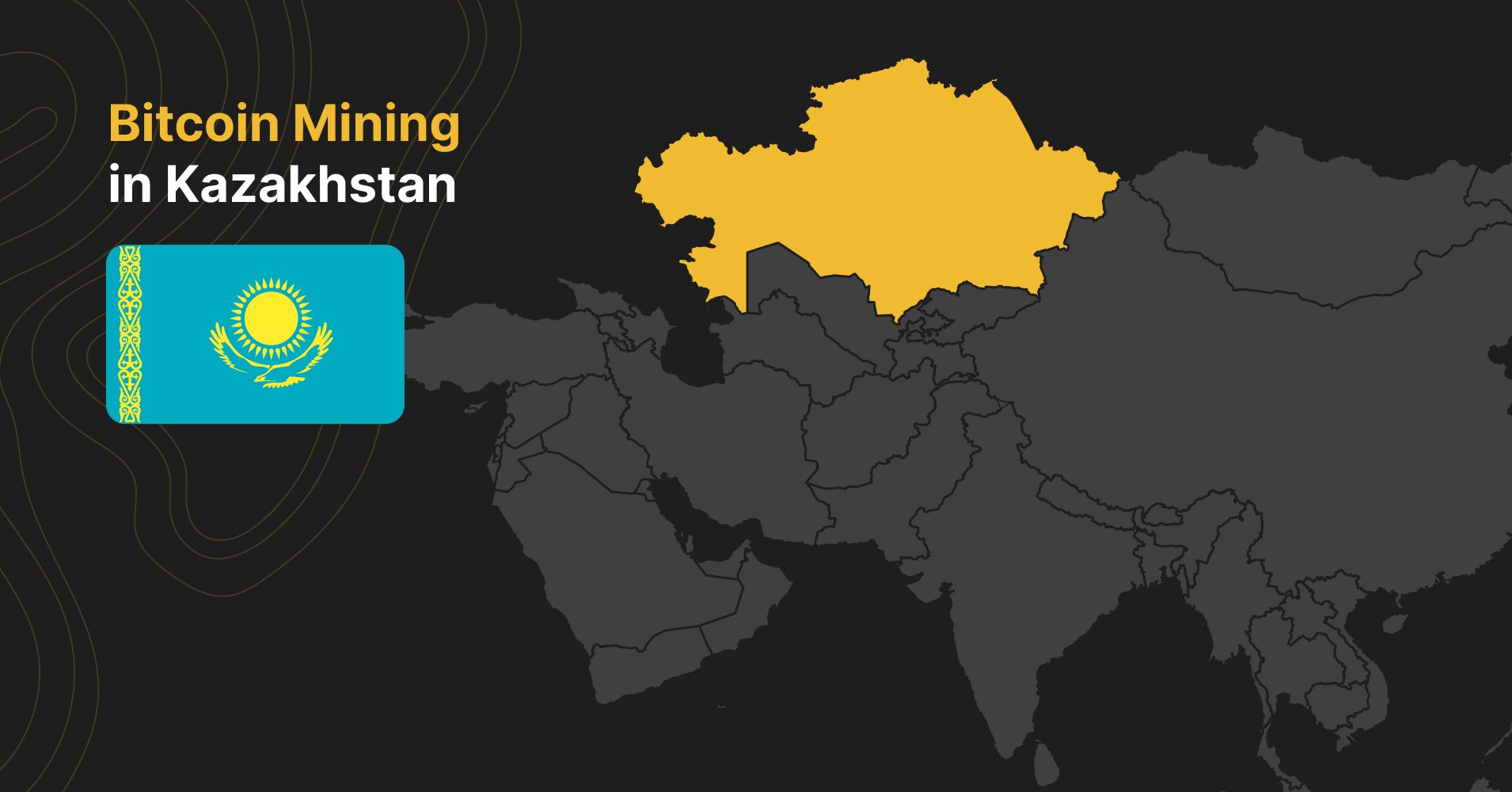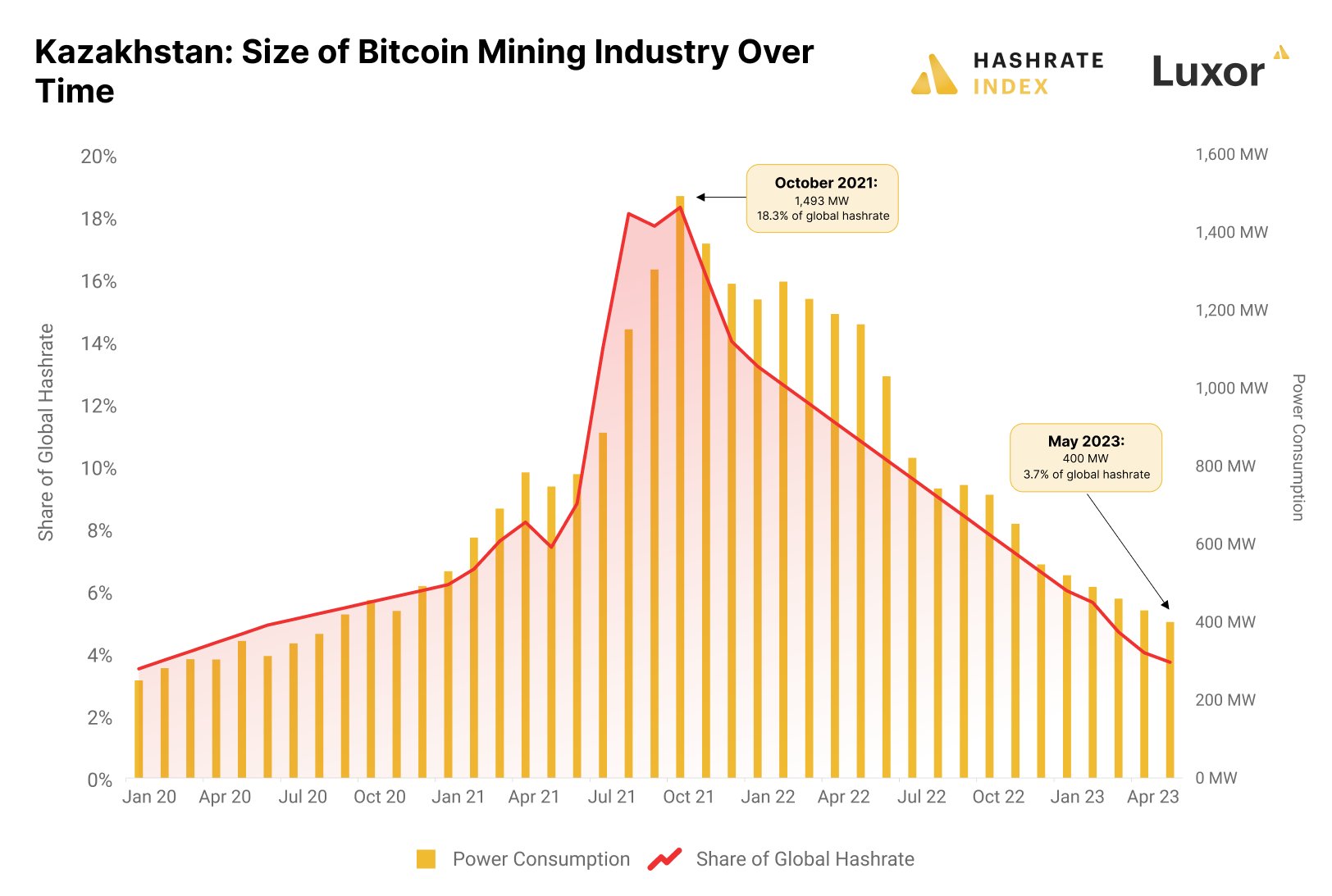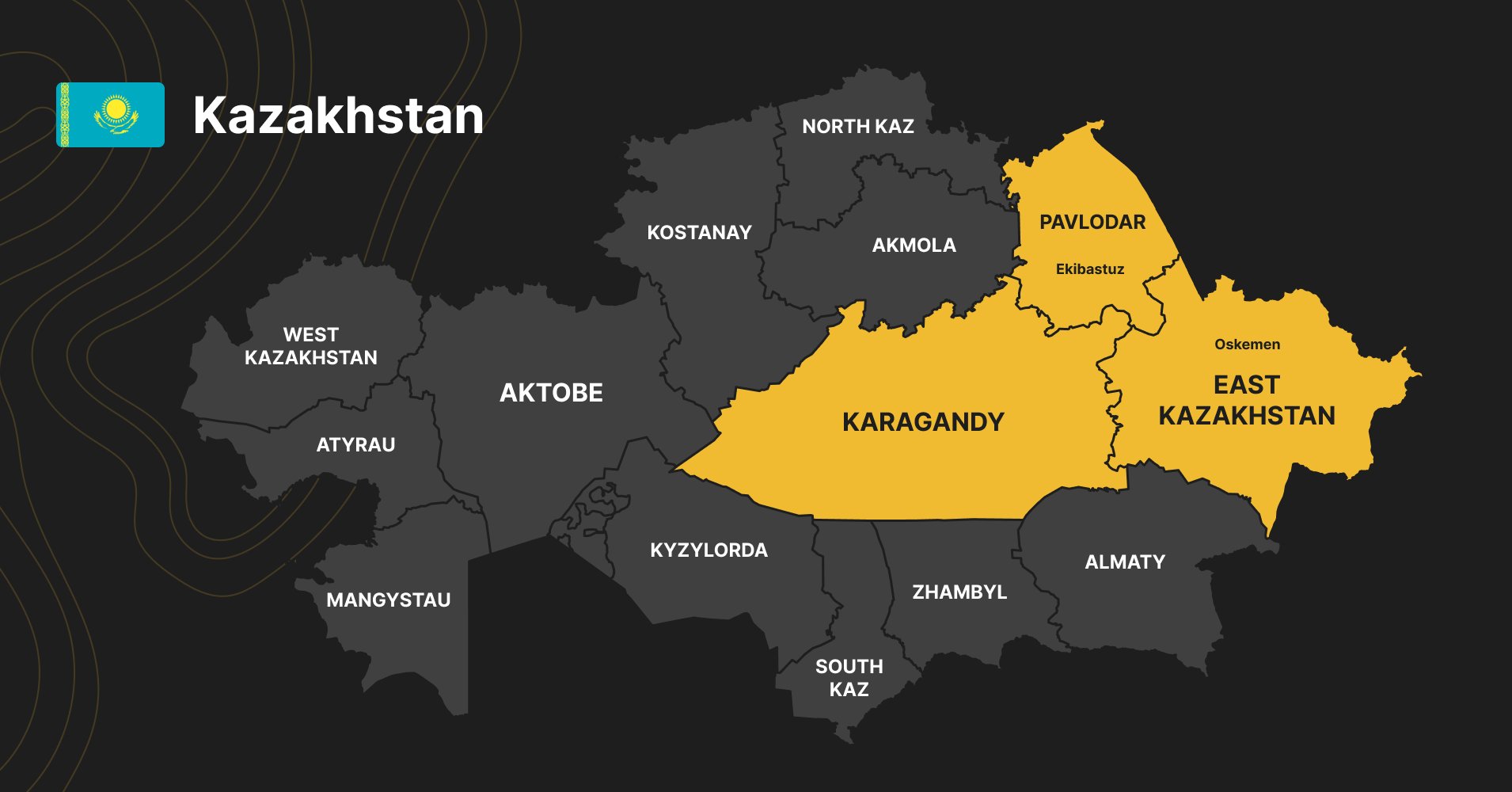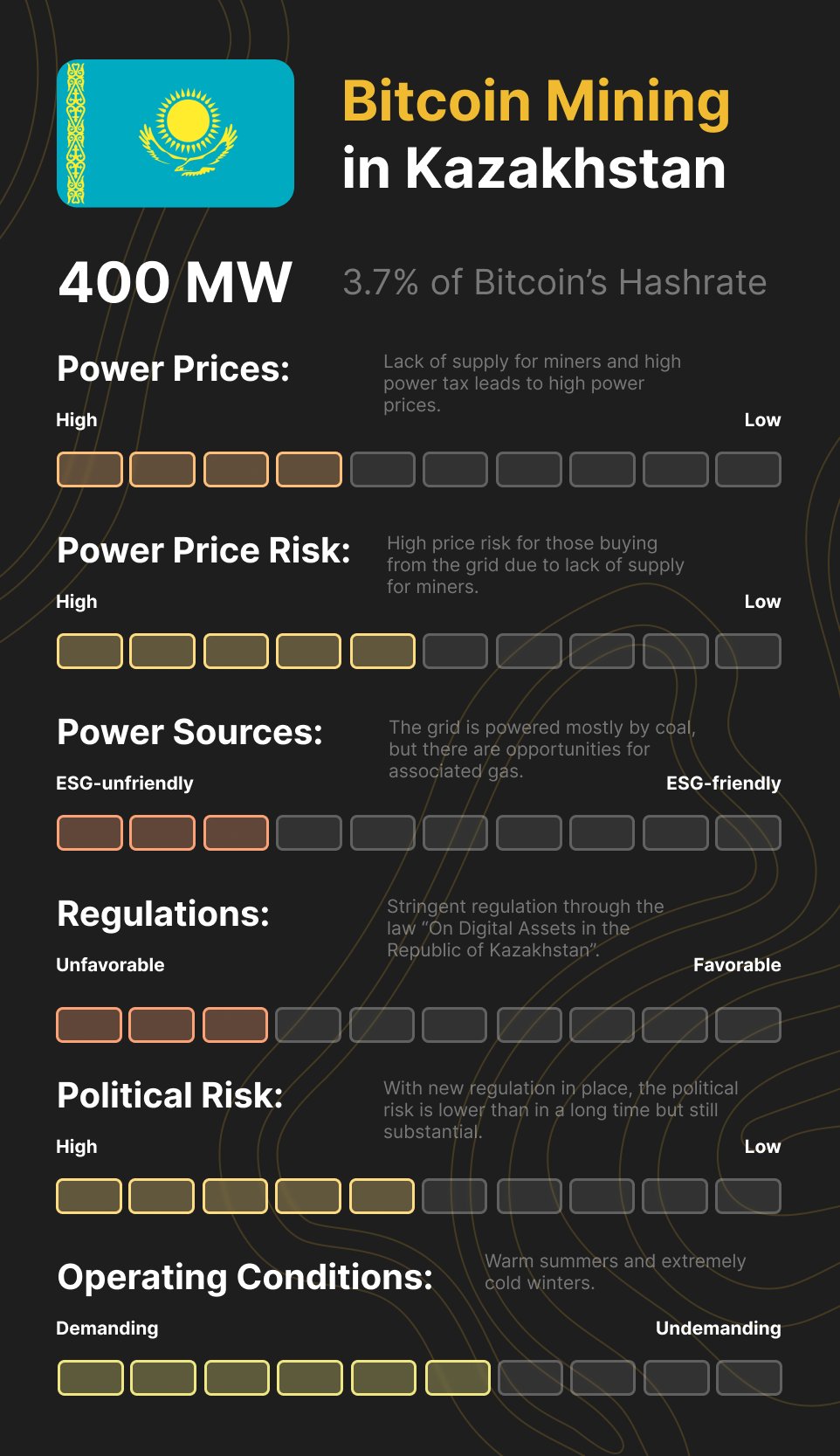Thread
I recently spent two weeks in Kazakhstan and met with insiders in the country's #bitcoin mining industry.
In this thread, I share some of the things I learned🧵
In this thread, I share some of the things I learned🧵
The Central Asian energy superpower Kazakhstan rapidly climbed to second place globally in bitcoin mining in 2021 with 18% of the global hashrate.
Now Kazakhstan only generates 4% of the global hashrate.
Now Kazakhstan only generates 4% of the global hashrate.
Kazakhstan is a massive energy producer. It produces vast amounts of oil, gas, and coal, and is the world's biggest uranium producer.
It exports all the other energy resources, using coal for internal energy generation.
It exports all the other energy resources, using coal for internal energy generation.
Most mining in Kazakhstan takes place in a handful of industrial cities in the northeast part of the country.
There is also some mining with associated gas in the west, close to the oil fields in the Caspian Sea.
There is also some mining with associated gas in the west, close to the oil fields in the Caspian Sea.
In Kazakhstan, energy producers started mining bitcoin a long time ago. Many power plants are self-mining, as it is much more profitable than selling energy for $0.02 per kWh to the grid.
These guys understand that #bitcoin mining is a way to export energy.
These guys understand that #bitcoin mining is a way to export energy.
Cheap electricity, huge hosting demand, access to cheap Chinese machines, and loose regulation and tax breaks provided the perfect breeding ground for a burgeoning Kazakh mining industry in 2020/2021.
Unfortunately, the rapid growth soon started spiraling out of control.
Unfortunately, the rapid growth soon started spiraling out of control.
Kazakhstan's Soviet-era electricity system had difficulties accommodating the sudden 1.5 GW demand growth from miners.
From September 2021, the grid operator started a regime of electricity rationing - a #bitcoin miner's worst nightmare.
From September 2021, the grid operator started a regime of electricity rationing - a #bitcoin miner's worst nightmare.
Kazakh miners have struggled heavily for over a year now under electricity rationing and unclear regulation.
However, those still operating are more optimistic than in a long time, as a new law was recently introduced, providing regulatory clarity for the industry.
However, those still operating are more optimistic than in a long time, as a new law was recently introduced, providing regulatory clarity for the industry.
The new law has four consequences for miners.
1) Miners need to obtain licenses to operate
2) Miners can only use licensed crypto exchanges and mining pools
3) Miners will be last in line for electricity supplies
4) A mining-specific electricity tax is introduced
1) Miners need to obtain licenses to operate
2) Miners can only use licensed crypto exchanges and mining pools
3) Miners will be last in line for electricity supplies
4) A mining-specific electricity tax is introduced
With the new law being implemented, the Kazakh bitcoin mining industry is at a crossroads. Either the law will provide the stable regulatory environment needed for the industry to grow sustainably, or its stringent rules will euthanize what is left of the industry
What is certain is that Kazakhstan has a power shortage problem that must be solved before the country’s bitcoin mining industry can return to its former gigawatt glory.
The only way I see the bitcoin mining industry in Kazakhstan substantially growing in the coming years is if miners develop their own generation capacity.
This can be from various sources, but the biggest potential is in associated gas, wind, and solar.
This can be from various sources, but the biggest potential is in associated gas, wind, and solar.
The sudden rise and fall of the Kazakh bitcoin mining industry prove that political risk is always looming in mining.
In early 2021, most believed mining in Kazakhstan was safe and hosted their machines there, only to discover it wasn’t safe after all.
In early 2021, most believed mining in Kazakhstan was safe and hosted their machines there, only to discover it wasn’t safe after all.
Read the full article for a detailed analysis of the future of Kazakhstan's #bitcoin mining industry:
hashrateindex.com/blog/bitcoin-mining-around-the-world-kazakhstan/
hashrateindex.com/blog/bitcoin-mining-around-the-world-kazakhstan/




